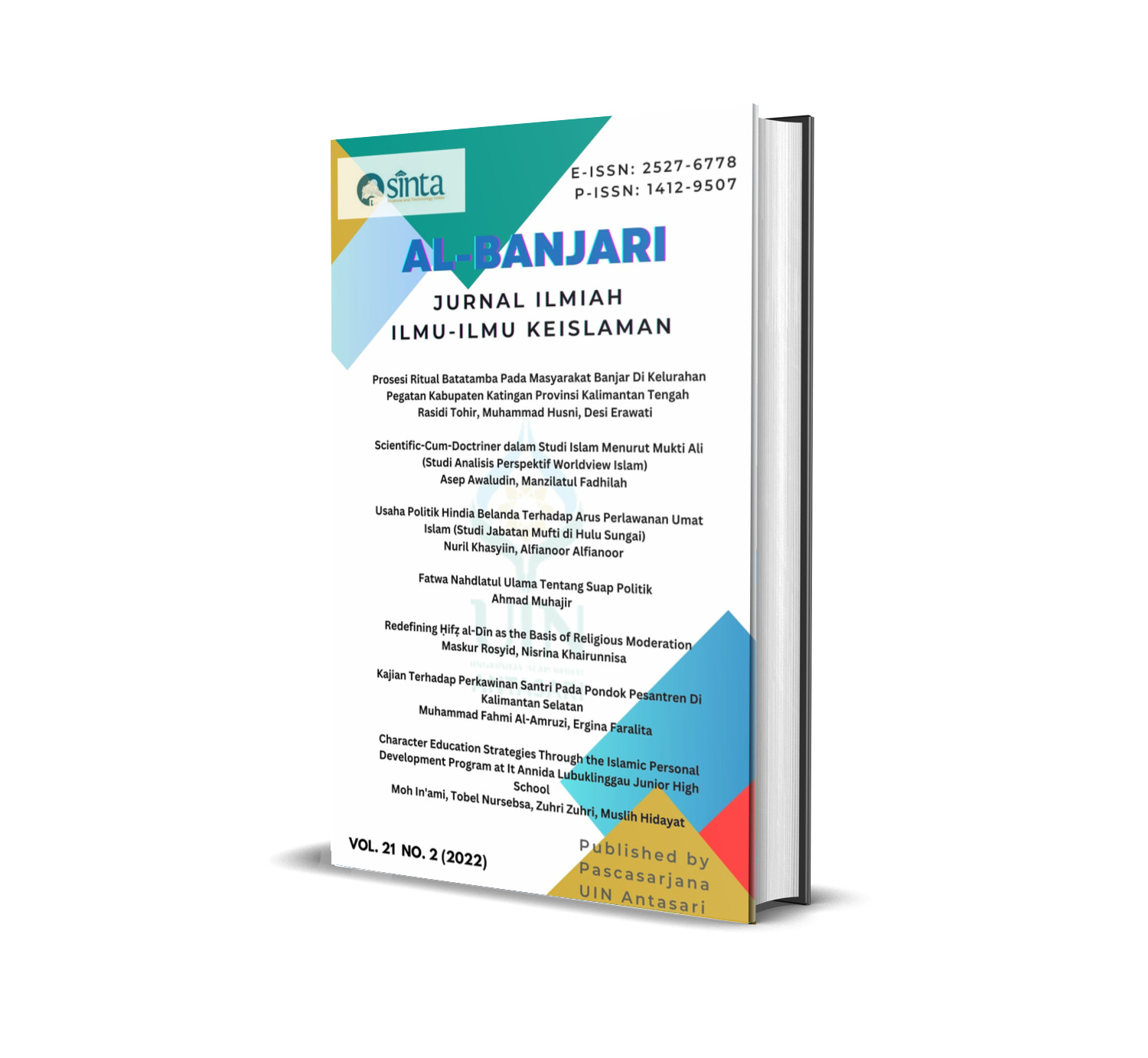Integration Of Islamic Values And Banjar Local Wisdom In Digital Transformation: Evaluating Online Learning At Islamic Higher Education Institutions In South Kalimantan
DOI:
https://doi.org/10.18592/albanjari.v21i2.15118Abstract
In the context of the ongoing digital transformation of education, particularly in Islamic higher education in South Kalimantan, Indonesia, the integration of information and communication technology (ICT) presents both opportunities and challenges. This study aims to evaluate the implementation of online learning in three Islamic universities during the COVID-19 pandemic, focusing on how Islamic values and Banjar local wisdom are integrated into digital education. A qualitative case study approach was used, employing the CIPP (Context, Input, Process, Product) evaluation model. Data were gathered through interviews, observations, and document analysis from lecturers, policymakers, and students at UIN Antasari Banjarmasin, STAI Rasyidiyah Khalidiyah Amuntai, and STAI Al-Falah Banjarbaru. The findings reveal varied levels of preparedness and success in implementing online learning, with UIN Antasari demonstrating a more comprehensive approach, supported by better infrastructure and effective digital platforms. In contrast, private institutions faced challenges related to internet access, limited human resources, and inadequate technological infrastructure. Despite these disparities, all institutions made efforts to incorporate Islamic values such as ta'awun (mutual assistance) and akhlaq (good character), along with Banjar local wisdom, into their pedagogical approaches. The study highlights the importance of continuous evaluation and investment in infrastructure to ensure that digital transformation in Islamic higher education remains inclusive, culturally relevant, and aligned with local values.Downloads
Published
2022-12-12
Issue
Section
Articles
License

This work is licensed under a Creative Commons Attribution-ShareAlike 4.0 International License.
Authors who publish with this journal agree to the following terms:
- Authors retain copyright and grant the journal right of first publication with the work simultaneously licensed under a Creative Commons Attribution License that allows others to share the work with an acknowledgement of the work's authorship and initial publication in this journal.
- Authors are able to enter into separate, additional contractual arrangements for the non-exclusive distribution of the journal's published version of the work (e.g., post it to an institutional repository or publish it in a book), with an acknowledgement of its initial publication in this journal.
- Authors are permitted and encouraged to post their work online (e.g., in institutional repositories or on their website) prior to and during the submission process, as it can lead to productive exchanges, as well as earlier and greater citation of published work (See The Effect of Open Access).


































